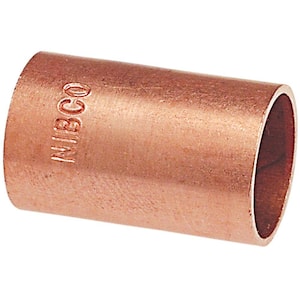The Ultimate Guide to Sustainable Dealing With Eco-Friendly Copper Products
The Ultimate Guide to Sustainable Dealing With Eco-Friendly Copper Products
Blog Article
Just How Copper Products Contribute to Lasting Practices in Various Sectors
Copper products are increasingly acknowledged for their substantial contributions to sustainable practices across multiple sectors, driven by their intrinsic properties such as durability, recyclability, and efficiency. In sustainable energy systems, as an example, copper enhances the functionality of solar and wind innovations, while its application in building and construction lessens waste through durability. Moreover, the product's antimicrobial features offer promising advantages in healthcare setups. As industries look for to adopt even more lasting methods, the role of copper could confirm critical in attaining ecological objectives. What implications might this have for future innovations in sustainability?
Copper in Renewable Power
Copper plays a crucial duty in the innovation of eco-friendly energy innovations, acting as a vital conductor in different applications. Its exceptional electrical conductivity and resistance to rust make it an excellent material for electric circuitry, which is important in solar panels, wind turbines, and energy storage space systems. In solar photovoltaic or pv systems, copper is made use of in the affiliations and circuitry, making it possible for efficient energy conversion from sunlight to electrical power.
In wind power, copper is indispensable to the generators and transformers that convert kinetic energy right into electric power, making certain optimum efficiency and integrity. Furthermore, the demand for electrical automobiles (EVs) is boosting, with copper being an essential component in batteries, motors, and billing facilities. The change to EVs considerably boosts the need for copper, as these automobiles usually utilize 4 times much more copper than traditional interior burning engine vehicles.
As the world looks for to minimize environment change and change to sustainable energy resources, copper's function becomes increasingly important. The product not just enhances the efficiency and longevity of renewable resource systems however additionally sustains the broader objective of reducing greenhouse gas exhausts and promoting a sustainable future.
Eco-Friendly Construction Materials
Over the last few years, there has been a significant change towards the fostering of environmentally friendly construction products in response to growing ecological issues. This change is encouraged by the need for lasting options that decrease environmental footprints while keeping structural integrity and aesthetic charm.
Copper, known for its toughness and recyclability, has actually become an essential player in this industry. It can be made use of in roofing, plumbing, and electric systems, adding to energy efficiency and lowering waste. Copper's durability means fewer replacements with time, further boosting its sustainability profile.
Furthermore, materials such as bamboo, reclaimed wood, and reused steel are getting popularity. These alternatives not just provide decreased ecological effect however additionally promote resource conservation. As developing codes increasingly stress sustainability, designers and home builders are incorporating these materials right into their tasks, cultivating innovation in layout.
The boosting fostering of green construction materials shows a more comprehensive dedication to sustainability in the developed setting. By focusing on these materials, the building and construction industry can dramatically lower its carbon footprint, line up with governing requirements, and sustain a healthier ecological community for future generations. This pattern notes a pivotal step towards an extra sustainable future in building and construction.
Copper's Duty in Health care
Recent researches have actually highlighted the substantial duty of copper in medical care settings, especially as a result of its antimicrobial residential or commercial properties. Copper surfaces have been shown to decrease the presence of virus, consisting of microorganisms and infections, by as much as 99.9% within a short period. This impressive efficiency makes copper an important product for high-touch surfaces in hospitals, such as doorknobs, bed rails, and IV posts, therefore adding to enhanced infection control steps.
Along with its straight antimicrobial results, copper also contributes in the more comprehensive context of health center sustainability (Copper Products). By including copper into medical equipment and furnishings, health care centers can lower the occurrence of healthcare-associated infections (HAIs), which not just enhances client outcomes but additionally lowers the expenses associated with extended health center remains and extra treatments
In addition, copper's toughness and recyclability line up with lasting methods, allowing for liable source management. As health care systems progressively focus on both person safety and security and environmental stewardship, the integration of copper items is ending up being much more widespread. This twin advantage emphasizes copper's vital payment to a healthier, much safer, and extra sustainable health care try this website atmosphere.
Sustainability in Transportation

Furthermore, copper's durability and rust resistance add to the durability of transportation infrastructure (Copper Products). In rail systems, for example, copper components improve the dependability and effectiveness of signaling and power systems, necessary for lowering delays and power intake. Furthermore, copper's role in renewable energy systems, such as solar and wind, sustains lasting transportation remedies by giving tidy energy for electrical transit options
Investments in copper technology not just foster sustainability however likewise stimulate economic growth and task development in eco-friendly markets. As industries strive to satisfy strict ecological policies, the application of copper products in transport emerges as a pivotal technique in attaining sustainability goals and promoting a cleaner, much more reliable future.
Copper and Round Economic Situation
As the globe significantly embraces sustainability, the function of copper in the circular economic climate ends up being ever much more considerable. Copper's intrinsic homes-- such as its conductivity, longevity, and recyclability-- setting it as an essential material in a resource-efficient economy. The round economic climate aims to decrease waste and take full advantage of resource usage through recycling and reusing materials, and copper master this respect.
The metal can be reused indefinitely without loss of high quality, making it a perfect prospect for sustainable methods throughout different fields, consisting of building, news electronics, and renewable resource. By reprocessing and recovering copper from end-of-life items, sectors can considerably decrease the demand for virgin materials, thereby reducing environmental effects connected with mining and handling.
In addition, the integration of copper into circular economic climate structures not just saves sources yet also cultivates development. Organizations that prioritize copper recycling contribute to a much more lasting supply chain, improving their competitiveness while aligning with regulatory demands and customer preferences for environmentally accountable items.
Verdict
Finally, copper products considerably add to sustainable practices across numerous markets. Their important role in enhancing sustainable energy modern technologies, promoting green building and construction products, supporting infection control in health care, facilitating lasting transport, and personifying the principles of a round economic climate emphasizes the versatility and importance of copper. By integrating copper right into various applications, markets can achieve higher efficiency, minimize ecological effect, and line up with worldwide sustainability objectives, ultimately cultivating a much more lasting future.

Copper's superb conductivity makes it a preferred material in electrical lorry (EV) systems, improving energy performance and performance. Additionally, copper's function in sustainable power systems, such as solar and wind, supports lasting transport options by giving tidy power for electric transportation choices.
Their vital function in improving renewable energy modern technologies, advertising environmentally friendly building and construction products, supporting infection control in medical care, assisting in sustainable transportation, and symbolizing the concepts of a round economic climate highlights the convenience and importance of copper.
Report this page